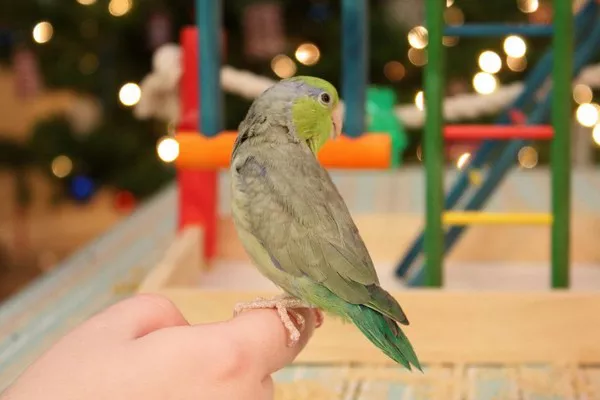Rabbits are often seen as gentle and affectionate pets, but understanding their emotional cues can be challenging. Unlike dogs or cats, rabbits have subtle ways of showing their feelings, including their aversions. If you’re concerned that your rabbit might not like you, it’s important to recognize the signs and understand the underlying reasons behind them. This article delves into how to identify if your rabbit is unhappy with you and provides insights on improving your bond with your furry friend.
Understanding Rabbit Behavior: The Basics
Rabbits are prey animals with a complex range of behaviors. Their natural instincts drive them to be cautious and sensitive, which can sometimes be misinterpreted as dislike or aversion. Before jumping to conclusions, it’s crucial to understand the basic behaviors and needs of rabbits.
Natural Instincts and Behavior
Rabbits are naturally cautious and sensitive animals. In the wild, they must be alert to potential predators, which influences their behavior in captivity. Common rabbit behaviors include:
Thumping: A warning sign to other rabbits of danger.
Hiding: Seeking safe spaces to avoid perceived threats.
Grooming: A sign of comfort and cleanliness.
Understanding these instincts helps in interpreting your rabbit’s actions and reactions.
Recognizing Signs That Your Rabbit Might Dislike You
If your rabbit is not behaving as you expect or seems withdrawn, it may indicate discomfort or dislike. Recognizing these signs early can help address the issues and improve your relationship.
Body Language: Key Indicators
Rabbits communicate largely through body language. Key signs that your rabbit might not be fond of you include:
Flattened Ears: When a rabbit’s ears are pinned back against their head, it typically indicates fear, aggression, or irritation.
Avoidance: If your rabbit consistently avoids you or hides when you approach, they might be feeling threatened or uncomfortable.
Aggressive Behavior: This includes biting, lunging, or growling. Such behaviors often indicate fear or discomfort.
Vocalizations and Responses
While rabbits are generally quiet, they do make sounds that can signal their feelings:
Growling or Grunting: These sounds usually signal irritation or displeasure.
High-Pitched Whining: Often a sign of distress or discomfort.
Understanding these vocalizations helps in addressing your rabbit’s needs and emotions more effectively.
Factors That May Affect Your Rabbit’s Perception of You
Several factors can influence how your rabbit feels about you. Understanding these can provide insights into improving your relationship.
Inappropriate Handling
Rabbits are delicate animals, and improper handling can lead to fear or dislike. Common mistakes include:
Picking Up Incorrectly: Rabbits should be supported properly to avoid injury or discomfort.
Lack of Respect for Personal Space: Rabbits need their own space and may react negatively if they feel crowded.
See Also: How to Train a Rabbit to Come When Called?
Environmental Stress
Changes in your rabbit’s environment or routine can affect their mood. Potential stressors include:
Loud Noises: Sudden or loud noises can startle rabbits and make them fearful.
New Animals: Introducing new pets or people can cause anxiety and alter your rabbit’s behavior.
Providing a stable and predictable environment helps in reducing stress and building trust.
Health Issues
Sometimes, changes in behavior can be linked to health problems. Common issues include:
Pain or Discomfort: Conditions like dental problems or gastrointestinal issues can cause a rabbit to act out or become withdrawn.
Illness: General illness can affect a rabbit’s behavior and make them less interactive.
Regular veterinary check-ups and attention to your rabbit’s health are essential for their well-being.
Improving Your Relationship with Your Rabbit
If your rabbit is displaying signs of dislike, there are steps you can take to improve your bond and ensure they feel more comfortable.
Building Trust Through Positive Interactions
Developing trust with your rabbit requires patience and positive reinforcement. Here are some tips:
Gentle Handling: Always approach your rabbit calmly and handle them gently. Allow them to come to you rather than forcing interaction.
Treats and Rewards: Use treats to create positive associations with your presence. Reward your rabbit for calm behavior and interactions.
Creating a Comfortable Environment
Ensure that your rabbit’s living space is comfortable and suited to their needs:
Safe Hiding Spots: Provide areas where your rabbit can retreat and feel secure.
Proper Housing: Ensure their habitat is clean, spacious, and provides adequate ventilation.
A well-maintained environment contributes to your rabbit’s overall comfort and happiness.
Regular Interaction and Engagement
Engage with your rabbit regularly to build a strong bond:
Playtime: Offer toys and activities that stimulate your rabbit’s natural behaviors.
Routine: Establish a consistent routine for feeding and care to help your rabbit feel secure.
Consistent, positive interaction helps in building a stronger, more trusting relationship.
When to Seek Professional Help
If your rabbit’s behavior doesn’t improve or if you’re concerned about their health, it might be time to consult a professional. Here’s when to seek help:
Persistent Aggression: If your rabbit consistently displays aggressive behavior despite your efforts.
Health Concerns: If you suspect a health issue or if your rabbit’s behavior changes suddenly.
Veterinarians or animal behaviorists specializing in rabbits can provide valuable insights and assistance.
Conclusion
Understanding and addressing your rabbit’s feelings requires patience, empathy, and proper care. By recognizing the signs of discomfort or dislike and taking proactive steps to improve your relationship, you can create a more harmonious and enjoyable bond with your furry friend. Remember, every rabbit is unique, and building trust takes time and consistent effort. With the right approach, you can foster a loving and positive relationship with your rabbit.
Related Topics:


























